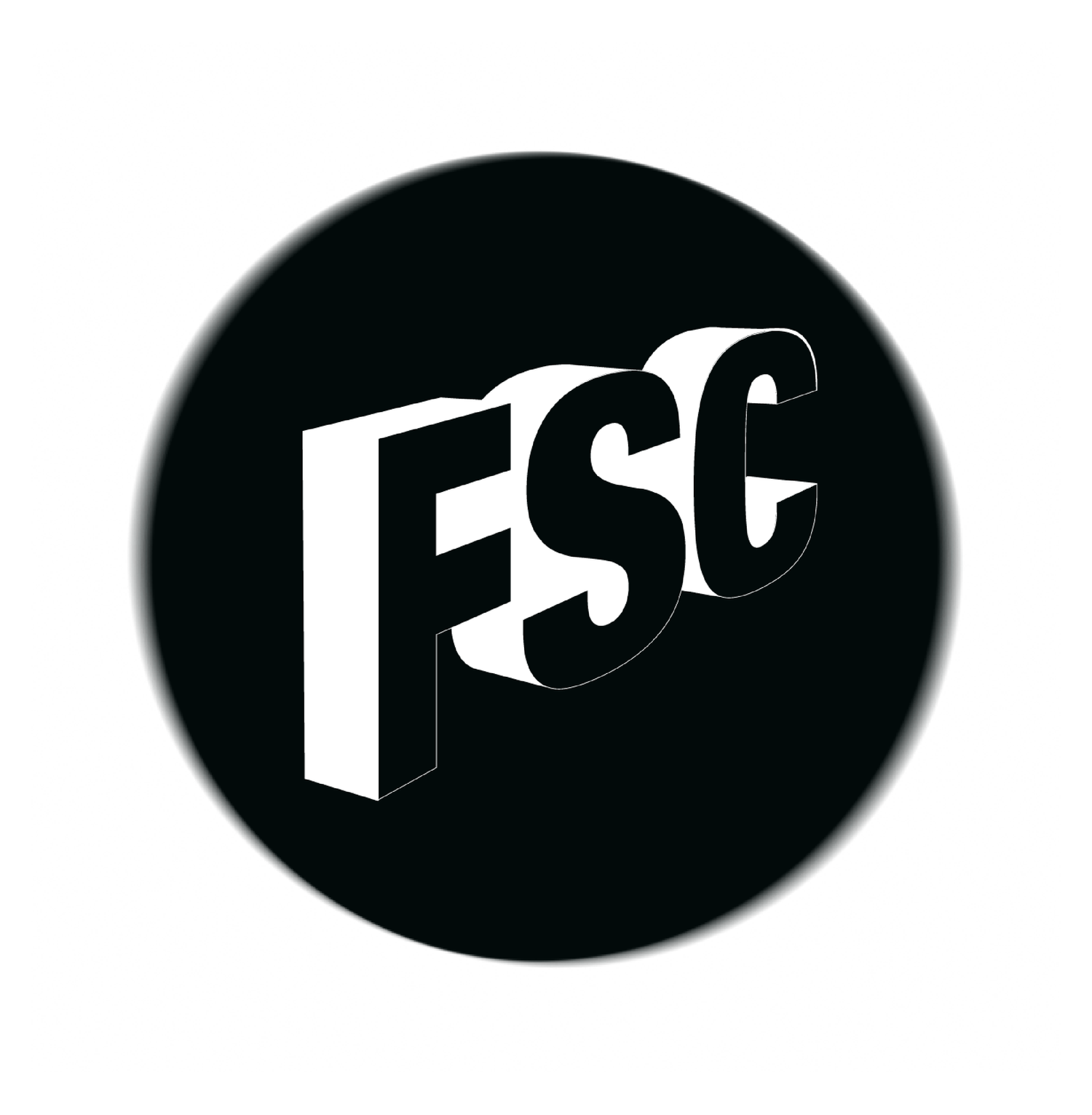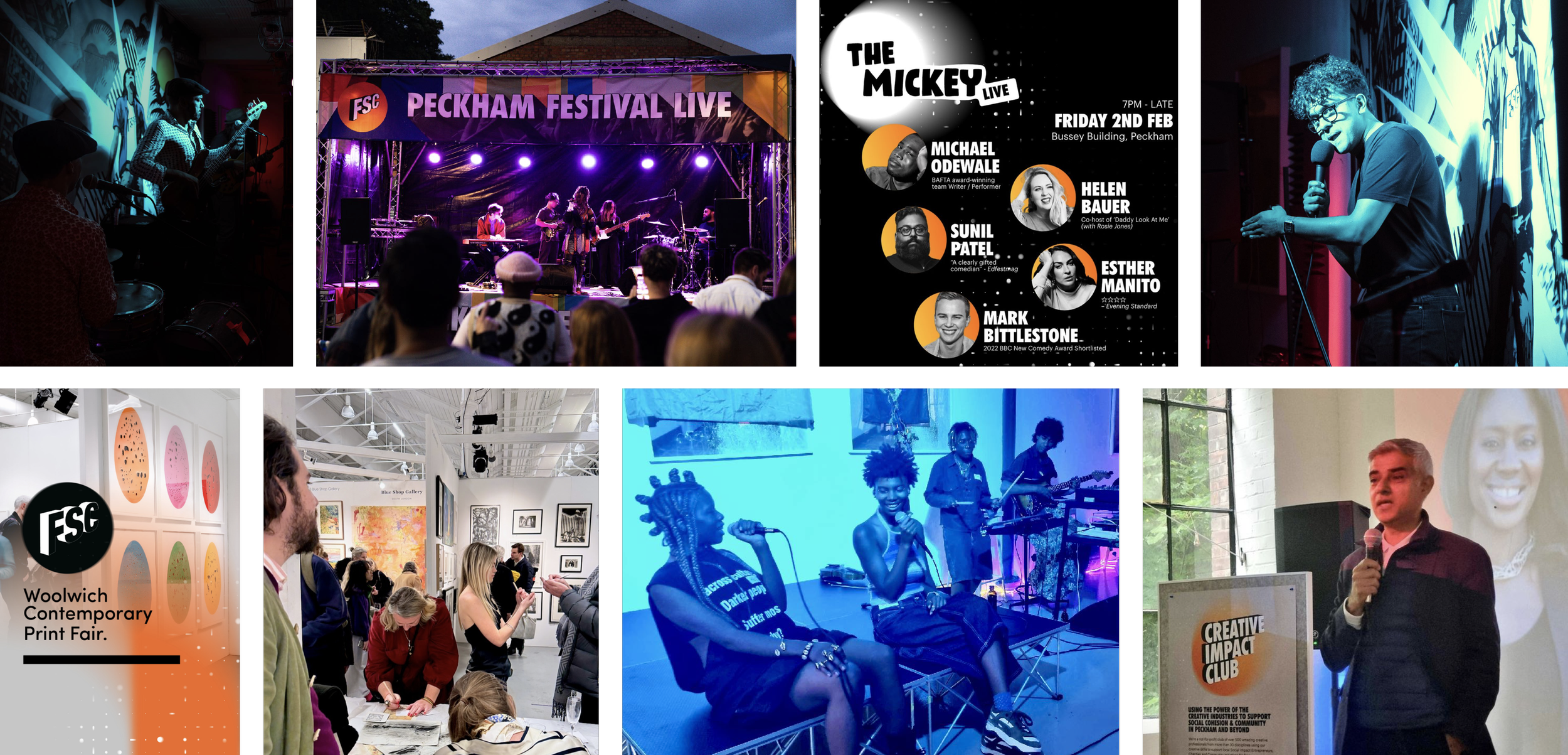The Art of Social Impact: Using Our Creative Skills For Good
The UK’s creative industries are a powerful force, fuelling both the economy and global cultural influence. In addition, a growing body of research shows that the arts offer significant benefits to wellbeing, both at an individual and societal level. Despite this opportunity to enact positive change, many creative agencies measure their success on a purely commercial basis – but FSC sees things differently. We recognise that we can be a catalyst for social prosperity, and we make this happen through a programme we call Creative For Good.
Introduction
More than just an economic engine, the creative industries drive cultural innovation and shape the UK’s global identity. But their potential for positive social impact is often left untapped, especially by pivotal players in this thriving industry who have the power to make a difference at the community level: creative agencies.
At FSC, we not only recognise the power that creativity has and wrap it into our ethos as an agency, we actively use that power – and create the conditions for others to do the same.
The immense value of the creative industries
The contribution of the arts to society and the economy cannot be overstated. Not only does the sector add £124 billion to the UK economy, it is earmarked by the government as a crucial driver of growth, being one of eight sectors identified for targeted support in the forthcoming industrial strategy, with a £60 million boost for the creative industries announced earlier this year.
On the global stage, the UK is a leader in the creative industries, being described in a 2023 McKinsey report as a “cultural powerhouse” with a globally recognised arts sector.
But as the government set out in the foreword to its Creative Industries Sector Vision, “The importance of the creative industries also goes well beyond the economy,” from the media we consume that makes us conscientious members of society to the “content and performances that enrich our lives and strengthen our global image.” This vision cements the view that the sector is “an essential positive force for society, bringing joy, inspiration and opportunity to our lives.”
Engagement with the arts not only makes us happier – it makes us healthier. This has been measured by the London School of Economics in their ‘happiness factor’ value survey; and other metrics have shown the arts increase jobs, help individuals learn new skills and improve their wellbeing, and encourage sociable behaviour. The impact of the sector is truly immense.
Agencies with agency
“The creative industries can serve as a national blueprint for how economic value and social impact can go hand-in-hand.”
Creative agencies are renowned for their ingenuity – building campaigns, brands, and digital experiences that influence trends worldwide. However, their transformative potential often remains locked within corporate goals.
FSC believes agencies should have agency – that they should act with purpose, and use their influence to facilitate social good.
We think creativity can and should:
Drive prosperity locally: by investing in grassroots initiatives, the arts and community projects.
Foster cohesion: by supporting cultural spaces that bring diverse people together.
Promote access to the sector: by dismantling barriers that make creative careers feel exclusive or unattainable.
In this way, the creative industries can serve as a national blueprint for how economic value and social impact can go hand-in-hand, and creative agencies can be the instruments of this shift in perspective.
The ‘Creative For Good’ programme
Based on the belief that the industry should actively engage with its social responsibilities, FSC launched ‘Creative For Good’, a programme which aims to harness the transformative power of creativity. Through this programme, we have redirected significant resources toward supporting initiatives in arts, music, theatre and comedy, and we have done so with a clear mission: to enrich local communities, starting with South London.
Over the last few years, we’ve put on comedy shows at our community hub in Peckham featuring local and up-and-coming comedians, supported access into the arts through our partnership with Woolwich Contemporary Print Fair, promoted local musicians through gigs at the FSC Hub and by sponsoring the Peckham Festival, and hosted both theatre nights and community events.
At the heart of our mission is our Social Incubator, a platform designed to launch and support impact-focused businesses that can make a tangible difference in communities. Through the Social Incubator, FSC has helped launch ventures like Creative Impact Club to support local charities.
Creative Impact Club
FSC founded the Creative Impact Club (CIC) in 2023 – an independent, not-for-profit initiative that empowers creative professionals to give back.
The CIC’s volunteer platform matches individuals from our talent network with local industry good causes, charities and community initiatives to provide free marketing and design skills.
So far, the impact from CIC’s work translates to:
£520k+ worth of creative projects delivered to charities for free
£200k+ invested into CIC by FSC
82 creative projects for charities across London
41 charities and community businesses worked with
30 events hosted in our community hub
345 days of creative professionals’ time spent working with charities and community businesses.
CIC’s work with Candoco and Finding Rhythms are two examples of how we’re breaking down barriers through creativity, and supporting others with the same ambition. Candoco is a world-renowned dance company with a mission to expand the landscape of dance and disability through performances and experiences that embody equity and inclusion. They needed engaging designs for a digital theatre programme, which CIC volunteer and graphic designer George Stuart delivered for them using elements of their original brand toolkit but augmenting it to bring in the rave theme of the show.
And for Finding Rhythms, who use music to help individuals in a range of custodial and community settings through courses that aid rehabilitation and build transferable skills, we matched them with brand specialist Chloe George who brought their visual brand to life (summarised in this post, where they refer to Chloe’s work as “a total game changer”).
From helping at-risk individuals to supporting the anti-FGM movement, to working with community membership bodies like Community Southwark, CIC proves that creativity isn’t just a commercial asset – it’s a driver of real-world change.
“Peckham has seen so much change in recent years, and actually to have people who genuinely want to use some of that change and involvement from creatives in a way that really adds to what’s already brilliant about the area, feels really quite special.”
Creative Impact Club exemplifies FSC’s commitment to Creative For Good. By empowering local charities with professional creative resources, CIC strengthens community ties and provides essential support to organisations that work on the ground to improve lives. This approach extends beyond traditional notions of charity work, recognising the power of creativity in driving meaningful social impact. Through CIC, FSC demonstrates how the skills, networks, and influence of creative professionals can be directed toward social prosperity and inclusivity, helping communities flourish.
Woolwich Contemporary Print Fair
For the last two years, FSC has been the lead sponsor of the Woolwich Contemporary Print Fair (WCPF). Like us, WCPF is reshaping what creativity means in practice.
WCPF has a unique alternative model that is revolutionising the traditional art market, disrupting the elitist nature of art fairs, and pushing the boundaries of art.
“Creative Impact Club exemplifies FSC’s commitment to Creative For Good. By empowering local charities with professional creative resources, CIC strengthens community ties and provides essential support to organisations that work on the ground to improve lives.”
The fair makes contemporary print more accessible, not just to artists – 50% of the artists at WCPF are not represented by galleries, allowing independent creators to have a seat at the table – but to art lovers, families and communities who might not otherwise engage with such work. Its setting in the former industrial heritage site at Woolwich Works further underlines this mission: art doesn’t belong behind closed doors, it belongs in the community.
FSC’s sponsorship brings our Creative For Good vision into this space. By supporting a fair that prioritises accessibility, diversity and innovation, we extend our ethos into the cultural sphere, making the arts more open, inclusive and relevant.
Creativity beyond commerce
We believe that creativity should not only serve brands and businesses, but also the communities in which we live and work. This belief underpins FSC’s mission: to use creative skills as a force for good.
Creativity to us is a precious communal resource – one that should fuel not just economic growth, but also social equity and community wellbeing. Through initiatives like CIC, and partnerships like our sponsorship of WCPF, we are proving that the skills and imagination of the creative industries can be directed toward a better future for all.
Future Strategy Club (FSC) is an independent creative agency that uses a unique partnership model to deliver incredible work without the overheads you’d find with a traditional agency. We provide the full spectrum of strategic and creative solutions, delivering growth for our clients through culture transformation programmes, comms strategies, global campaigns, TV ads, social strategies and brand communities.
Get in touch to find out why our values, approach and commitment to our clients makes us the creative partner you are looking for in a constantly changing world: hello@futurestrategy.club.


